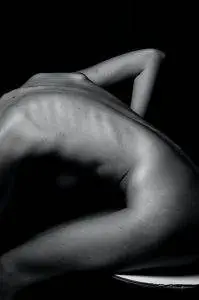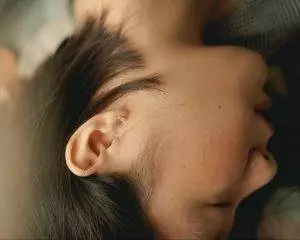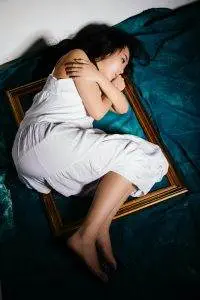-
 Art of Wellness Acupuncture & Traditional Chinese Medicine (TCM)11704 Wilshire Blvd, Suite 295, Los Angeles, CA, 90025
Art of Wellness Acupuncture & Traditional Chinese Medicine (TCM)11704 Wilshire Blvd, Suite 295, Los Angeles, CA, 90025
myartofwellness@gmail.com310-451-5522 Office Hours
MonClosedTue7:30 am --4 pmWed7:30 am --4 pmThu7:30 am -- 4 pmFri7:30 am -- 4 pmSat7:30 am -- 4 pmSunClosedOur office opens from Tuesdays to Saturdays 7:30 am to 4 pm, will be closed on Memorial day, Independent day, Labor day, Thanksgiving day, Christmas and New year.
-
Recent Posts
- How to Treat De Quervain’s Tenosynovitis With Acupuncture and TCM
- Chinese New Year 2026: Year of the Horse
- Acupuncture and TCM Treatment for Perimenopause Symptoms
- How to Treat Insulin Resistance With Acupuncture and TCM
- How to Treat Metabolic Syndrome With Acupuncture and TCM
- How to Treat Syncope With Acupuncture and TCM
- How to Treat Thoracic Outlet Syndrome With Acupuncture and TCM
- How to Treat Dupuytren’s Contracture With Acupuncture and TCM
- How to Treat Nutcracker Syndrome With Acupuncture and TCM
- How to Treat Rosacea With Acupuncture and TCM
- How to Treat Perioral Dermatitis With Acupuncture and TCM
- Lymphatic Drainage With Acupuncture and TCM
- How to Treat Turf Toe With Acupuncture
- How to Treat Nerve Pain With Acupuncture and TCM
- How to Treat Watery Eyes With Acupuncture and TCM
- How to Treat Ovarian Cysts With Acupuncture and TCM
- Sign up to receive news and updates and get my free report:“The Top 10 Reasons to Try Acupuncture”

December 2025 M T W T F S S 1 2 3 4 5 6 7 8 9 10 11 12 13 14 15 16 17 18 19 20 21 22 23 24 25 26 27 28 29 30 31
Traditional Chinese Medicine
How to Treat Oligospermia With Acupuncture and TCM
By Xiaomei Cai, L.Ac., Ph.D. & Qineng Tan, L.Ac., Ph.D.

If you and your partner have been trying to get pregnant but it hasn’t happened yet, maybe you are concerned that it could be due to male infertility, or low sperm count, also known as Oligospermia. Male factor infertility is an issue in 40-50% of cases when a couple is having trouble conceiving. Acupuncture and TCM herbs offer a male infertility treatment that can help improve sperm production, increase sperm count, and help men produce healthy sperm.
Infertility in men is more common than you might think. Statistics show that infertility increasing worldwide is an issue, as many couples are having trouble conceiving. Roughly one in ten couples find that they are not able to get pregnant without some form of fertility treatment. Most men don’t know they may have this problem until they are trying to get their partner pregnant and things aren’t working. When couples go in for a female and male infertility test, about half of the time they find that male fertility is compromised. The cause of infertility in male can be due to many variables, so it may take more testing to discover why there is a problem. In many cases, infertility in men and women is never fully explained medically.
You can take a sperm count test at home, but that doesn’t tell you the whole story. A fertility test for men, or semen analysis, performed through a doctor will give you more information about sperm motility, sperm shape, the concentration of sperm in your semen, the Ph balance of the semen, and other details that may help to determine if there is a problem with male factor infertility. Other, more specific tests can show: swimming speed and direction, whether there are antisperm antibodies (ASAs) present, the sperm’s effectiveness at breaking through the outer wall of an egg, etc. Of men who are experiencing problems with infertility, about ten percent have azoospermia, which means a sperm count of zero, or no sperm in the semen. This can happen due to genetic conditions, radiation or chemotherapy treatments, use of some drugs, or anatomical abnormalities.
One of the most common causes of infertility in men is varicoceles, which are swollen veins in the testicles, similar to varicose veins. Varicoceles are not always noticeable, and often don’t cause any problems. However, they can block proper blood flow in the testicles, cause the temperature of the scrotum to rise, and have a negative impact on sperm production. This condition can be treated with surgery to repair the veins, or redirect blood flow to healthier veins.
Perhaps you have already heard about how beneficial TCM treatment can be for infertility in women, but you may not know that acupuncture for male infertility is also effective, whether used as an adjunct to ART (assisted reproductive technologies) treatment for male fertility, or as an alternative to conventional medical treatment. In the case of varicoceles, for example, studies have shown that men treated with acupuncture showed similar improvement in sperm motility and quality to men who had had minimally invasive surgery to help repair varicoceles.
Acupuncture treatment works on many levels, helping to improve blood circulation, reduce inflammation, cool excess heat, boost testosterone and erectile function, as well as helping to optimize overall health by reducing the effects of stress and anxiety, and improving sleep.
Top 10 Cause of Low Sperm Count

Problems with low sperm count and low sperm motility can be related to underlying health issues, or in some cases, lifestyle habits that may affect sperm production.
- Varicocele – swelling in the blood vessels in the testicles that has a negative impact on sperm production and sperm quality.
- Infections – some illnesses, like mumps, or sexually-transmitted diseases, like gonorrhea or HIV, can cause inflammation, damage, and/or scarring in the testicles that can affect sperm health or the mechanical release of sperm from the testicles.
- Ejaculation problems – chronic health conditions like diabetes, the use of blood pressure medications like alpha-blockers, or injury to the urinary tract or spine, can cause problems with the process of sperm being mixed with semen from the prostate and exiting the body through the penis. Retrograde ejaculation, for example, means that semen and sperm are going into the bladder instead of being expelled through the penis during ejaculation. Erectile dysfunction (ED) can also be an issue.
- Immune Infertility – autoimmune disorders can cause antibodies (antisperm antibodies, or ASA) to mistakenly attack sperm as if they were foreign bodies. This can happen in both men and women. (If a woman is producing ASAs, they attack the sperm when they enter the female reproductive system.) Some men who have had a vasectomy begin to develop these antibodies, and then, even after reversal of the vasectomy (vasovasostomy), they still have male infertility issues.
- Blocked tubes – several sets of tubes are involved in proper functioning of the male reproductive system and the male urinary system. If any of these tubes (the vas deferens, epididymis, seminal vesicle, urethra) are blocked, due to infection, inflammation, scarring, or other damage, it can affect sperm making it into the semen and out of the body during ejaculation. BPH and other prostate problems can cause inflammation in this area.
- Hormone imbalance – low testosterone levels or imbalances in levels of FSH and LH, hormones can cause low sperm production.
- Undescended testicles – a small number of male babies are born with one or both testicles that have not descended into the scrotum. In some cases, the testicles will descend within a few months on their own; in other cases, surgery is performed to correct the problem. If a boy grows into adulthood with his testes undescended, it can affect male fertility.
- Cancer or other tumors – a tumor or imbalance in hormones due to cancer (testicular cancer, prostate cancer, or bladder cancer) can disrupt sperm production. Side effects of cancer treatments like radiation, chemotherapy, and hormone therapy can also slow down sperm production or stop it. These side effects can also affect libido and sexual function.
- Chromosomal defects – several genetic disorders can cause infertility in men due to chromosomal abnormalities (Noonan’s syndrome, Cystic fibrosis, Kleinfelter syndrome)
- Celiac disease – While there has only been limited research done thus far, there have been some connections made between male infertility and celiac disease, which is a type of autoimmune disorder. One study suggested that a gluten-free diet helped men with celiac disease to increase sperm count.
Other things that can impact sperm count and sperm motility include the use of recreational drugs like marijuana, opiates, hormone supplements meant to boost testosterone, or anabolic steroids taken to build more muscle mass. Medications used to treat autoimmune disorders, like IBDs, Crohn’s disease, etc., can also affect male fertility.
How to Increase Sperm Count – Medical Treatments

Medical treatment and ART for male infertility depends first on testing to get as clear a diagnosis as possible. If it seems like some infection is causing problems, antibiotics may be prescribed, although in some cases, an extended infection may have already done some damage to the organs involved. If hormone imbalance is the problem, medications that alter the balance of FSH and LH, hormones crucial to sperm production, may be used, including estrogen receptor blockers, or human chorionic gonadotropin. As previously mentioned, surgeries to repair varicoceles can help to restore fertility.
In many cases, though, the exact cause of male infertility is not known. Male infertility is a complex health issue. The physical mechanics of sperm production, erectile function, and ejaculation are all important. It is important to acknowledge that these forces are closely connected to a man’s mental health and emotional health. If there is a lot of stress around trying to get pregnant, stress about having sex, stress in the relationship, or many other issues that may come into play, then the stress itself can have a real impact on sexual function and sperm production. Acupuncture and TCM is a good treatment method to address all of these physical and emotional issues at the same time, without unwanted side effects.
Can Acupuncture Help Male Infertility and Oligospermia?
First, let’s make it clear: acupuncture treatment for low sperm count is not going to involve needles being placed anywhere near the scrotum or penis. Acupuncture works on a subtle level and is relatively painless. Patients usually find it relaxing, and often take a nap during the treatment.

According to TCM theory, both blood and Qi need to flow smoothly throughout the channels of the body, nourishing the organs, for there to be optimal health. This is particularly true when it comes to promoting good reproductive health. Sperms must be ready to move through both the man’s reproductive system and the woman’s reproductive system, penetrate an egg, and start a new life. In order for healthy sperm to be produced, there needs to be a lot of blood and energy flowing to the testicles, where sperm are created.
In TCM, dampness and phlegm are often the causes of blockages. Acupuncture treatment focuses on improving blood flow, not only to testicles, but also to the kidneys and liver. TCM theory considers the kidney to be the keeper of a person’s “essence.” Essence is the life material that we inherit from our parents and pass on to our children. The kidneys are also considered to be responsible for the regulation and transformation of fluids in the body. Strengthening the kidneys, clearing heat, phlegm, and dampness from the organs, and nourishing the blood and Qi are the main focus of acupuncture treatment for low sperm count.
Nutrition, diet, exercise, stress reduction, adequate sleep, and other lifestyle habits are important factors in treating low sperm count. Your acupuncturist near me will go over the details in order to help you choose foods that boost fertility and adjust your routines so that they are most beneficial for infertility.
It helps to realize that sperm take about two to three months to mature, so acupuncture, herbs, and changes in lifestyle, as part of a holistic treatment regimen, need to be given adequate time and commitment to take effect.
One study confirmed that scrotal temperature and sperm count were improved in a significant number of men treated for oligospermia with acupuncture.
A study measuring sperm maturity and functionality found that patients treated with acupuncture for five weeks showed an increase in sperm function at the end of the five weeks, and then scored higher for sperm function again five weeks after treatment had ended.
Another study looked at acupuncture for low sperm motility and found that acupuncture helped increase sperm motility in a significant number of men.
Chinese herbs have been shown to have a positive effect on balancing FSH and LH levels.
Acupuncture Near Me for Oligospermia in Los Angeles
Dealing with male infertility due to low sperm count can be frustrating and stressful. It’s important that you and your partner put together a team of supportive health care providers who are also experts in the field of infertility treatment. At Art of Wellness, we have over thirty-five years of experience providing the very best in integrative care for infertility. We have worked with many of the top ART providers in Los Angeles, providing adjunctive care for couples going through fertility treatment.
*This article is for education from the perspective of Traditional Chinese Medicine only. The education provided by this article is not approved by FDA to diagnose, prevent, treat and cure human diseases. It should not stop you from consulting with your physician for your medical conditions. Traditional Chinese Medicine is based on Qi, which is an invisible force that usually cannot be observed by modern science. Because science focuses on testing ideas about the natural world with evidence obtained through observation, these aspects of acupuncture can’t be studied by science. Therefore acupuncture and Chinese herbs are often not supported by double-blind, randomized trials, and they are considered alternative medicine therapies in the United States.
How to Treat Crohn’s Disease With Acupuncture and TCM
By Qineng Tan, L.Ac., Ph.D. & Xiaomei Cai, L.Ac., Ph.D.

Abdominal pain that flares up, persistent diarrhea and stomach pain, bloody stool? These can be signs of Crohn’s Disease, an autoimmune disorder that affects the gastrointestinal tract. Along with ulcerative colitis, Crohn’s disease is a type of Inflammatory Bowel Disease (IBD). Acupuncture and TCM herbs can help reduce the inflammation that causes IBD symptoms.
About 3 million people in the U.S. are living with Crohn’s disease; it can affect people of all ages and backgrounds. Crohn’s symptoms sometimes begin to show up in childhood or during the teenage years, but most people are diagnosed with Crohn’s in early adulthood. As it does tend to run in families, it is believed that Crohn’s is caused partially by genetic makeup, but even if you have a close family member who has Crohn’s that doesn’t necessarily mean you will get it.
Crohn’s disease is a type of autoimmune disease. In autoimmune disorders, the body’s immune system, which is designed to fight potentially dangerous pathogens, mistakenly attacks normal cells or tissues. In the case of Crohn’s disease, inflammation is caused by the body’s immune system launching an attack against bacteria that are normally present in the gastrointestinal tract to help with digestion. As with other autoimmune diseases (Lupus, rheumatoid arthritis, Multiple Sclerosis (MS), fibromyalgia, Type 1 diabetes, Graves’ disease, hyperthyroidism, Hashimoto’s thyroiditis, etc.), the causes are not fully understood by medical science.
Symptoms of Crohn’s disease are similar to ulcerative colitis symptoms; both are related to chronic inflammation in the gastrointestinal (GI) tract. The difference is the specific location. Ulcerative colitis only affects the colon, or the large intestine. Crohn’s disease can affect any part of the gastrointestinal tract, from the mouth, all the way through the stomach, small intestine and large intestine, to the anal area.
IBDs create inflammation that causes pain, cramping, and compromises the healthy functioning of portions of the GI tract. Over time, Crohn’s can cause so much damage to the tissues of the intestines and other organs that surgeries are required to repair it.
Treatment of Crohn’s aims not only to reduce symptoms of nausea, diarrhea, and abdominal pain, but to prevent this kind of damage. Conventional medicine for Crohn’s can help control the disease to some extent. TCM methods, used as an alternative or adjunct to pharmacological treatment for Crohn’s, can relieve symptoms and help to restore healthy digestion and bowel function.
Acupuncture and other TCM treatments such as moxibustion have been shown to help patients with Crohn’s disease by reducing inflammation, allowing for the repair and healing of damaged tissues in the GI tract, and reducing IBD symptoms like nausea and joint pain.
Top 5 Types of Crohn’s Disease
Crohn’s Disease is classified according to where in the GI tract inflammation is causing pain and problems.
-
Ileocolitis – affects the area where the small intestine connects to the large intestine, causing diarrhea and pain in the lower right abdomen.
-
Ileitis – affects just the lower part of the small intestine, causing diarrhea and abdominal cramps, weight loss, and possibly fistulas developing between sections of the intestine.
-
Gastroduodenal – affects the connection of the stomach to the small intestine, causing more upper GI symptoms like nausea, vomiting, and loss of appetite.
-
Jejunoileitis – affects the upper part of the small intestine, causing cramping and diarrhea
-
Granulomatous Colitis – Crohn’s that affects the colon area, causing diarrhea, rectal bleeding, bloody stool, and possible anal fistula or fissure. Skin rashes and joint pain are also more commonly seen with this type of Crohn’s disease.
Top 10 Symptoms of Crohn’s Disease

As with other autoimmune disorders, Crohn’s disease causes flares that come and go. You may have periods of time when everything seems fine, then some stress or change in your environment can trigger a flare up of IBD symptoms. Each person will have their own experience of Crohn’s symptoms:
- Diarrhea, explosive diarrhea, urgent need to go
- Stomach pain, lower abdominal pain, epigastric pain, stomach ache
- Stomach cramps, abdominal cramps, cramping
- Rectal bleeding, bleeding from anus, bloody stool
- Constipation, feeling like you can’t go or you still have to go even after you’ve gone
- Fatigue, tired all the time, chronic fatigue, low energy
- Poor appetite, not hungry
- Mouth sores, cold sores around mouth
- Red eyes, watery eyes, blurred vision, dry eyes, eye pain, sensitivity to light
- Swollen joints, joint pain, joint inflammation, colitic arthritis
When it shows up early in life, Crohn’s disease can affect a child’s growth and development. In adults, Crohn’s can cause weight loss and anemia. The chronic inflammation of the GI tract and persistent diarrhea associated with Crohn’s can impede the normal absorption of nutrients from food. Fevers, anemia, vitamin deficiencies, dehydration, and electrolyte imbalances can all become concerns for someone with Crohn’s.
Other potentially related problems can include: kidney stones or other kidney problems, urinary problems, and inflammation of the bile ducts (pericholangitis).
More serious complications of Crohn’s involve tissue damage in the gastrointestinal tract, creating open sores or ulcers. An anal fissure is when there are tears in the rectal tissue, causing bleeding from the anus. A fistula develops when tissue breaks down between sections of the intestine, or between the intestine and the bladder, or the rectal area and the vagina. A stricture occurs when a section of the intestine becomes so inflamed that the passage becomes narrowed or blocked by scar tissue. Many people with Crohn’s disease end up having surgery to help remove these blockages, also called stenosis, due to bowel stricture, or to repair fistulas that have developed in the intestines.
Diagnosis and Medical Treatment of Crohn’s Disease
Again, as with many autoimmune diseases, it can be difficult to get a clear diagnosis for Crohn’s or IBD. Many people will suffer with stomach pain and diarrhea for a long time without realizing that something deeper is going on, and there is no simple, single test to show that you have Crohn’s. If blood tests and stool tests indicate that there is no other type of infection causing the symptoms, then colonoscopy and/or endoscopy, ultrasound or CT imaging can be used so that doctors can see where the inflammation is and where the ulcerative pain is centered.
Medicine like Imodium is commonly used to help reduce the severity of diarrhea. Immunosuppressant medications, immunomodulators, or monoclonal antibodies may be prescribed to help block the immune responses causing the inflammation. Corticosteroids are often used to help reduce inflammation. These medications, used in combination, can help to reduce symptoms of Crohn’s. However, these drugs can have serious side effects. Biologics can increase the risk of serious respiratory infections and may increase the risk of certain cancers. Corticosteroids can contribute to bone loss (osteoporosis) and cause swelling in other parts of the body. Immunosuppressants can stress the liver and pancreas.
Can Acupuncture Help Crohn’s Disease?

TCM treatments have been proven to be effective for helping to reduce inflammation and relieve pain for many types of conditions, including autoimmune disorders that can be difficult to treat with conventional medicine. TCM works well to help bring relief to people with autoimmune diseases because acupuncture and herbs work upon both the physiological and emotional aspects of the illness. Crohn’s flare ups can be triggered by stress, anxiety, depression, and other mental health issues or strong emotions. Acupuncture can help to relieve stress and worry, so that they are less likely to feed into physical symptoms.
Acupuncture and moxibustion can help improve symptoms of diarrhea, stomach cramps, and epigastric pain. Through using these safe healing modalities, acupuncture practitioners are able to help people with bloated stomach, IBS symptoms, and nausea. Acupuncture treatment can also positively affect the vagus nerve in the brain, which plays an important role both in the functioning of the immune system and the parasympathetic nervous system that controls the action of the entire GI tract. Acupuncture can also positively impact the microbial bacteria that reside in the intestines, bringing them closer to normal levels.
A trial study that compared Crohn’s patients treated with acupuncture and moxibustion for 12 weeks with patients who received “sham acupuncture.” The patients who had real treatment showed significant improvement of symptoms over those in the control group.
A study to discover how electro-acupuncture treatment affects the brain-gut connection in patients with Crohn’s showed that acupuncture and moxibustion had a positive impact on activity in the hippocampus and vagus nerve areas of the brain.
Another study that looked at the chemical composition of intestinal mucosa found that acupuncture treatment helped improve the health of the lining of the intestines and reduced inflammation.
Acupuncture Near Me for Crohn’s Disease in Santa Monica, CA
Living with Crohn’s symptoms can be seriously debilitating. Chronic diarrhea and stomach pain can feel like they’re taking over your whole life. It is possible to manage Crohn’s disease symptoms without negative side effects. If you or someone you know is suffering with an IBD, or possibly an autoimmune disorder, or more than one autoimmune disease, it is worth trying TCM methods to see if they work for you.
*This article is for education from the perspective of Traditional Chinese Medicine only. The education provided by this article is not approved by FDA to diagnose, prevent, treat and cure human diseases. It should not stop you from consulting with your physician for your medical conditions. Traditional Chinese Medicine is based on Qi, which is an invisible force that usually cannot be observed by modern science. Because science focuses on testing ideas about the natural world with evidence obtained through observation, these aspects of acupuncture can’t be studied by science. Therefore acupuncture and Chinese herbs are often not supported by double-blind, randomized trials, and they are considered alternative medicine therapies in the United States.
How to Treat Meniere’s Disease With Acupuncture and TCM
By Qineng Tan, L.Ac., Ph.D. & Xiaomei Cai, L.Ac., Ph.D.

My ear feels clogged sometimes, I get sudden dizzy spells, and sometimes I think I’m losing hearing in one ear! These symptoms could be signs of Meniere’s disease, a condition of the inner ear that causes ringing in the ears or buzzing sounds, sudden hearing loss, and vertigo–that spinning sensation sometimes accompanied by nausea. Acupuncture is an effective vertigo treatment and can help resolve the dizziness and hearing problems associated with Meniere’s.
A lot of people may not realize that they have Meniere’s disease, because the most common symptoms can also be indicators of many other health issues. For example, sudden attacks of vertigo can be caused by a condition called benign paroxysmal postural vertigo, or BPPV. BPPV is another kind of inner ear problem, caused by the movement of small crystals of calcium carbonate into a part of the ear canal where they do not belong. Vestibular migraine and other types of migraine headaches can cause feelings of vertigo and ringing in the ears. Ringing in the ears, also known as tinnitus, can also be a symptom of a sinus or ear infection, thyroid problems, cardiovascular problems, or caused by repeated exposure to excessive noise levels.
Meniere’s disease is a chronic condition that can begin at any time during life, but it is most commonly diagnosed when a person is in their 40s or 50s. Most of the time, Meniere’s symptoms only affect one ear. A “Meniere’s attack” can come on in a way that is similar to a migraine. First there may be subtle signs that it is starting, like changes in hearing, or a feeling of fullness or congestion in one ear. Then, a sudden and strong attack of vertigo can make you feel so dizzy, light-headed, and off balance that you have to lie down. You may even feel nauseated to the point of vomiting. These episodes of intense dizziness can last anywhere from several minutes to several hours, or even a whole day. Afterwards, you may feel exhausted and need to rest. Never knowing when you might have one of these attacks of severe vertigo can be very disruptive and unsettling, really having a negative impact on your life.
Each person’s experience of Meniere’s disease is different, and there is no clear cause for the disorder. Over time, some people may have fewer and fewer symptomatic episodes, while other people may have them more frequently and may begin to develop more serious hearing problems. Hearing loss associated with Meniere’s disease may seem to come and go at first, but it can progress to the point of permanent hearing loss, or deafness.
What causes Meniere’s disease? Medical science is unclear as to why some people develop this inner ear problem, but it is generally believed to be related to excess fluid in the ear. Meniere’s symptoms might develop after some type of head injury or ear infection, respiratory infection, or viral infection. Meniere’s may be related in some cases to migraine headaches, or to immune system dysfunction. Some women experience Meniere’s symptoms during their premenstrual syndrome (PMS) week. As with many other illnesses, Meniere’s can be triggered by stress or anxiety. Currently, Meniere’s treatment typically involves medications that offer some symptomatic relief, like anti-nausea medications.
Acupuncture and other TCM treatments for Meniere’s disease offer a holistic way to address the varying symptoms of dizziness, vertigo, nausea, tinnitus, and hearing loss. While there is no cure for Meniere’s, it is possible to reduce the symptoms so that they are not so bothersome anymore and even to help prevent further hear loss.
Top 5 Symptoms of Meniere’s Disease

Meniere’s symptoms can be subtle at first, and a person may only have a few episodes of ringing in ear or vertigo once in a while. The common signs of Meniere’s include:
- Dizziness, vertigo, spinning sensation, light-headed
- Hearing loss, hearing problems, sudden drop in hearing, sounds are muffled
- Tinnitus, ringing in the ears, buzzing sound, roaring in ear
- Sensation of fullness in the ear, ear feels plugged up or congested
- Nausea, feeling like you’re going to be sick or vomit
In some cases, people with Meniere’s can have sudden falls, sometimes called “drop attacks,” or Tumarkin’s otolithic crisis. You may feel like you’re falling, or the room is tilting around you, and the next thing you know, you’re on the floor. These falls are unpredictable and can cause injuries.
Medical Treatment for Meniere’s Disease
One of the common treatments for Meniere’s vertigo, ringing in the ears, or a sensation of fullness in the ears is the use of diuretics like Lasix, Diamox, or Dyazide, following the logic that they will help reduce the amount of fluid in the inner ear. However, there is not much scientific evidence showing that this method works for everyone, and diuretics may have other negative consequences, such as lowering blood pressure.
Anti-nausea medications, known as antiemetics, may offer some relief from nausea during bouts of vertigo. Histamines and their receptors are understood to be involved with signalling in the brain that may impact balance, so antihistamines, such as Dramamine and Benadryl, are often offered as a way to reduce dizziness. Again, there is not much evidence of the efficacy of antihistamines for vertigo. Drowsiness is a common side effect of taking antihistamines. Antidepressants are also sometimes prescribed to help with vertigo.
In rare instances, doctors may perform surgery to physically alter the inner ear; this is called labyrinthectomy. This may help reduce debilitating vertigo for some patients or help to prevent drop attacks, but for some people, it can cause even more damage to their hearing capabilities, and can even cause deafness. All of these medical treatments only try to reduce symptoms, they don’t help to prevent hearing loss due to Meniere’s disease.
Can Acupuncture Help Meniere’s Disease?

According to TCM theory, the sensation that the ear is clogged is related to a buildup of Phlegm, causing both physical obstruction and blocking the flow of Qi (energy). Dampness and Wind are other pathogenic factors that can contribute to Meniere’s symptoms of dizziness, vertigo, and the ringing or whooshing sounds in the ear. Weak Kidney energy, combined with Wind rising from the Liver, can cause dizziness, tinnitus, and headaches. An acupuncturist will listen carefully to find out which symptoms are arising, and when, and will choose acupuncture points on the head to directly address the obstruction in the ear, as well as other points on the body to address issues with Kidney Qi.
It may be helpful to make certain dietary changes to help address the excess fluid involved in Meniere’s disease, including reducing salt and sodium, and limiting caffeine and alcohol. Your acupuncture provider will discuss nutritional choices that will help to relieve Meniere’s symptoms.
One study of Meniere’s patients treated with acupuncture showed not only that their vertigo had subsided after a few treatments, but that their hearing levels were maintained rather than worsening as treatment went on.
Another study compared patients with Meniere’s who were treated with antihistamines to a group of patients who received acupuncture treatment for 12 weeks in addition to the antihistamine medication. The patients who received acupuncture reported significantly less vertigo and dizziness, less tinnitus, and actual improvements in their hearing over the patients who received medicine only.
A review of studies using TCM methods, including acupuncture treatment, moxibustion, cupping, and herbal supplementation, to treat Meniere’s disease found that symptoms of vertigo and dizziness were, by and large, greatly reduced, to the point of patients reporting their vertigo as being fully resolved.
A study in which patients were given acupuncture and herbs for 10 days resulted in a 95% effective rate, with the majority of people treated reporting no symptoms at all after the treatment, even after a two-year follow-up.
Acupuncture Near Me for Meniere’s Disease in West Los Angeles
Vertigo is a deeply unpleasant sensation, and never knowing when an attack of dizziness and nausea may strike can really disrupt your daily life. TCM has a proven track record of effectively helping people get over symptoms like dizzy spells and ringing in the ears, and may even help to prevent further hearing loss. If you know you have Meniere’s disease, or if you have some combination of these symptoms but aren’t sure what’s going on, it may be a good time to visit a qualified acupuncturist to see if acupuncture can help relieve dizziness due to Meniere’s, migraines, or BPPV.
*This article is for education from the perspective of Traditional Chinese Medicine only. The education provided by this article is not approved by FDA to diagnose, prevent, treat and cure human diseases. It should not stop you from consulting with your physician for your medical conditions. Traditional Chinese Medicine is based on Qi, which is an invisible force that usually cannot be observed by modern science. Because science focuses on testing ideas about the natural world with evidence obtained through observation, these aspects of acupuncture can’t be studied by science. Therefore acupuncture and Chinese herbs are often not supported by double-blind, randomized trials, and they are considered alternative medicine therapies in the United States.
How to Treat PTSD With Acupuncture and TCM
By Qineng Tan, L.Ac, Ph.D. & Xiaomei Cai, L.Ac., Ph.D.

Post Traumatic Stress Disorder (PTSD) is a type of mental illness that develops after a person has gone through a traumatic life event. PTSD flashbacks, intrusive thoughts, nightmares, and sleep disorders are a few of the most common signs of PTSD. Acupuncture and TCM are widely accepted as a highly effective way to treat complex PTSD and other stress disorders, as well as anxiety, depression, panic attacks, and insomnia.
PTSD is mostly commonly associated with veterans of the military, as many soldiers who have served in combat experience trauma related to war violence. A significant amount of scientific research and psychiatric study has been devoted to finding out about PTSD and what treatments for PTSD are effective. Relative to other conditions, there have been quite a few studies showing that acupuncture can be helpful for PTSD. The U.S. Navy has even started an acupuncture training program in San Diego, after a Pentagon study showed that TCM is beneficial for veterans.
PTSD is not only a problem for military veterans, though. PTSD can result from all kinds of traumatic life events, including things like: accidents, natural disasters, surgeries, assaults, attacks, abandonment, or the death of a loved one. More than 8 million Americans are currently living with post traumatic stress. People of all ages can experience PTSD. PTSD can result from experiencing something traumatic directly, or being a witness to such an event. People whose jobs involve exposure to violence or disturbing situations, such as first responders, social workers, or police officers, can also have PTSD because of things they have seen. A person can be deeply traumatised by something they didn’t see happen firsthand, but that they heard happened to someone close to them.
The body’s response to extreme stress is one of its ways of protecting us. Stressful situations cause the “fight-or-flight” response and chemicals like adrenaline to be released. When this happens repeatedly, or to an extreme degree, because a person is literally in fear for their life, there can be long-lasting physical and emotional effects. Normal, everyday stress we hope to release from the body through exercise, meditation, laughter, and other stress-reducing activities. But when a person has endured abuse or life-threatening danger, they may not be able to release the stress from their bodies so easily.
TCM theory offers a way to help people deal with mental health issues like PTSD because it creates a context in which emotional and mental symptoms interact with physical symptoms. TCM addresses the way that trauma and negative emotions are stored in the body, sometimes causing overwhelming emotional and physical symptoms. Acupuncture and herbs are holistic treatments for PTSD that can be used as an adjunct to therapy and medications to help relieve stress, sleep problems, mood disorders, negative emotions, and problems with cognitive function.
Top 10 Signs of PTSD

Many people don’t realize that they are experiencing post traumatic stress. PTSD can overlap with several other types of mental health problems, and the symptoms of PTSD can often seem similar to those of other anxiety disorders or symptoms of depression. What PTSD feels like can be highly individual to each person and what caused their initial trauma.
The most commonly recognized symptoms of PTSD include:
- Flashbacks, intrusive thoughts, reliving traumatic events, can’t stop thinking about what happened
- Nightmares, recurrent, vivid, disturbing dreams
- Avoidance of triggering places, activities, or people
- Memory loss, amnesia, unable to remember periods of time related to the traumatic event
- Negative perception of self, negative perception of the world, blaming self or others
- Isolation, unable to connect with other people, relationship problems
- Feelings of anger, irritability
- Hypervigilance, always aware of perceived threat, can’t relax, exaggerated startle response, always on guard, panic attacks
- Difficulty concentrating, inability to focus on the present
- Insomnia, can’t sleep
PTSD often coexists with other mental health issues like anxiety, panic attacks, and depression. Chronic fatigue syndrome (also knowns as ME/CFS)has been associated with PTSD. Fibromyalgia, a syndrome that can cause generalized muscle pain, sleep problems, fatigue, and other problems can be related to PTSD. Sometimes fibro manifests after a traumatic event.
Types of PTSD

The term “stress disorder” refers to a combination of physical and emotional symptoms that are the body’s and mind’s stress responses to some type of trauma.
Different types of stress disorders include:
- Normal stress response – even common everyday work stress and relationship stress can cause widespread health problems. Serious issues like a relationship breakup, or job loss can lead to negative emotions and physical problems due to stress. People of all ages can experience debilitating symptoms of stress like: stomachaches, headaches, trouble concentrating, rapid heartbeat or trouble sleeping. If stress is allowed to build up over time, it can seriously damage health. Past illnesses or viral infections, like Epstein Barr and mononucleosis can also be a factor.
- Acute stress disorders – acute post traumatic stress is the immediate aftereffect of some sort of traumatic event or life-or-death situation. If the short-term (30 days or less) acute signs of trauma are left unaddressed, they can turn into PTSD.
- Uncomplicated PTSD – this refers to PTSD symptoms related to a specific traumatic event, such as a car accident, being the victim of a crime or assault, or surviving a natural disaster and its aftermath. This type of PTSD causes symptoms like: flashbacks, nightmares, avoiding a particular area, thing, or person, and strong feelings of anger, blame, and fear that impact your relationships and sleep patterns.
- Complex PTSD – complex trauma is the result of multiple, repeated traumatic episodes, like suffering abuse as a child, being in an abusive relationship, domestic violence, or repeated sexual abuse. Complex PTSD could also happen to people living in wartime conditions or who are part of a targeted community under brutal conditions. PTSD attacks can be brought on by complex PTSD triggers that remind you of the traumatic events, such as: a particular place or smell, a time of year or date, a physical pain or sensation in a particular part of the body, or reading a story or seeing a movie or TV show that brings up the memory.
- Comorbid PTSD – this refers to PTSD that coexists with other serious issues such as substance abuse, addiction, and/or depression. Comorbid PTSD is very common, because many people suffer from more than one of these mental health conditions at the same time.
In general, complex PTSD and comorbid PTSD are considered more difficult to treat and more likely to affect people throughout their lives than uncomplicated PTSD.
PTSD Treatment
Treatment for PTSD typically involves a combination of psychotherapy/cognitive behavioral therapy (CBT) and psychiatric medications for PTSD such as antidepressants (SSRIs like Zoloft, Prozac, or Paxil) and anti-anxiety medications (like Xanax, Ativan, Valium, or Klonopin). Long-term use of anti-anxiety medications is generally not recommended, as patients can become dependent on them, leading to abuse of the drugs. SSRIs can be helpful for symptoms of depression, but they can also have negative side effects, like sexual dysfunction (ED), weight gain, nausea, dizziness, and making sleep problems worse.

Exposure therapy is a specific type of therapy that helps people learn coping skills by working with the distressing memories or exploring possibly frightening situations in a safe environment with a therapist. Eye movement desensitization and reprocessing (EMDR) helps patients learn to adapt to the stress tied to the past trauma by thinking about it while looking at a movement pattern or listening to a repetitive sound. This treatment has been shown to help PTSD patients heal emotional trauma more quickly than talk therapy or CBT alone.
The conventional treatments for PTSD can help some patients, to different degrees, but many people with complex trauma do not want to go through this type of treatment. Talk therapy, trauma-based CBT, and exposure therapy may be terribly intimidating to people who are suffering with PTSD, and patients may be more afraid of entering into these kinds of therapy than continuing on with their current symptoms.
The TCM modality of acupuncture can have a positive effect on neurotransmitters, the brain chemicals that influence cognitive thought patterns and moods, without the potential negative side effects or dependency that can result from medications. Acupuncture can be a helpful alternative or complementary treatment to other types of therapy for PTSD.
Can Acupuncture Help PTSD?
In historical records of TCM, we do not see a word or description of a condition that is directly synonymous with PTSD. However, in TCM, we view emotional states as being related to the function, or dysfunction, of specific organ systems. The symptoms of PTSD can correlate with these relationships between the organs, the mental state, and physical manifestation of symptoms:
- Lung – Grief – Wheezing, trouble breathing, sweating, fatigue
- Spleen – Worry – Nausea, gastric problems, loss of appetite
- Liver – Anger – Headaches, muscle pain, dizziness
- Heart – Anxiety – Palpitations, insomnia
- Kidney – Fear – Urinary frequency, night sweats, memory problems
A TCM provider will look carefully at how each individual describes their physical symptoms and emotional state, and will choose acupuncture points for PTSD and herbs to help strengthen the organ systems that need nourishment.
In regards specifically to military veterans with PTSD, many survivors are wary of seeking medical or psychological treatment for complex trauma. The majority of soldiers who have served in the Middle East in recent years have been diagnosed with PTSD, but less than half of those veterans are receiving medical treatment for PTSD. Many people, in general, are reluctant to seek care, either because they don’t trust that it will work, or their complicated feelings of shame, guilt, grief, and anger are too overwhelming to share with others.
Acupuncture can be particularly helpful for some people suffering from PTSD because it does not necessarily have to involve talking about the original trauma or abuse. Some patients may avoid psychotherapy for this very reason, as they are not ready, and may never be ready, to go over these details with another person. An acupuncturist can help relieve symptoms of anxiety and depression by focusing on the person’s emotional and physical needs and tailoring the treatment to fit their symptoms and lifestyles.
A clinical study done by the Long Beach V.A. randomly divided patients into “real acupuncture” and “sham acupuncture” groups, and the patients received treatments twice per week over the course of 12 weeks. The veterans who received real acupuncture showed significant physiological improvement, with less startle reactions, as measured by skin sensors, than the sham group.
A Rand review found that acupuncture helped improve symptoms of depression, anxiety, and sleep problems in PTSD patients.
Acupuncture Near Me for PTSD in Los Angeles
It can be a long and challenging process to overcome complex PTSD, but with the right combination of PTSD treatment, it is possible to reduce or even eliminate symptoms. With a TCM approach and acupuncture treatment, we can help reduce anxiety and depression, address feelings of anger and grief in a clinically meaningful way, and help to promote better sleep. If you or a loved one is dealing with unresolved trauma and needs help, you may find that acupuncture is a low-risk and supportive way to treat PTSD.
*This article is for education from the perspective of Traditional Chinese Medicine only. The education provided by this article is not approved by FDA to diagnose, prevent, treat and cure human diseases. It should not stop you from consulting with your physician for your medical conditions. Traditional Chinese Medicine is based on Qi, which is an invisible force that usually cannot be observed by modern science. Because science focuses on testing ideas about the natural world with evidence obtained through observation, these aspects of acupuncture can’t be studied by science. Therefore acupuncture and Chinese herbs are often not supported by double-blind, randomized trials, and they are considered alternative medicine therapies in the United States.
How to Treat Seizures With Acupuncture and TCM
By Qineng Tan, L.Ac., Ph.D. & Xiaomei Cai, L.Ac., Ph.D.

Sudden loss of consciousness, convulsions or jerking body parts, staring, feelings of fear, anxiety, deja vu? These are all possible signs of seizure. Epilepsy is a chronic neurological disorder that causes different types of seizures. Research has shown that acupuncture and TCM treatment for epileptic seizures can be an effective adjunct to conventional treatment.
Epilepsy is a common disease of the central nervous system that can happen to people of all ages. Epilepsy is a term that can refer to a variety of different types of seizures; it defines a condition in which a person has recurrent seizures. Over 3 million people in the U.S. have been diagnosed with epilepsy; it is one of the most common neurological disorders worldwide.
What is the cause of seizures? Unusual electrical activity in brain cells can cause various types of seizures, depending on what area of the brain is affected. In some cases, people begin to have seizures due to a head injury, or a brain infection, such as meningitis. Some people seem to be born with an unusual brain structure that affects the area of the brain that causes seizures. In older people, symptoms of epilepsy may coexist with those of other neurological conditions, such as Alzheimer’s disease, or seizures may start occurring as an effect of having suffered a stroke or heart attack. Seizures can be caused by an allergic reaction to some food, as when a person with Celiac disease is exposed to gluten. Medical science has not yet discovered the exact meaning of seizures that occur in other cases, but it is thought to be due to genetics.
People with epilepsy need treatment to try to prevent or reduce seizures. While some seizures are mild, others can be severe, and even life-threatening. TCM has been using acupuncture treatment and herbs to help seizures for many, many years, and recent research is beginning to demonstrate how TCM as integrative care for epilepsy can be beneficial.
What Happens During a Seizure?
The signs of seizure can vary widely from person to person, but an individual’s specific pattern of what seizures look like will usually remain consistent.
Symptoms of seizure include:
- A range of changes in awareness: from staring and being unresponsive, up to totally losing consciousness
- Stiffening of the limbs, limbs twitching, or part of the body shaking
- Changes in vision: double vision, seeing flashes of light, staring, or blinking repeatedly
- Dizziness, sudden headache
- Sweating, nausea
- Having trouble breathing, or stop breathing
- Falling down for no apparent reason, sudden collapse, head nodding, muscles go limp, sometimes called “drop attacks”
- Loss of bladder or bowel control
- Feelings of anxiety, panic attack, fear
- Sense of having an “out of body” experience
- Strange taste in mouth or smelling strange smells
- Feelings of confusion
- Drooling or frothing at the mouth, biting tongue or inside of cheeks
- After the seizure, a person may feel exhausted, or have amnesia, trouble remembering what happened.

Historically, there have been many misconceptions about people who suffer from seizures, or “fits disease.” When a person is not having a seizure, they are usually otherwise healthy and capable. People with epilepsy are not necessarily limited in what they can do physically or mentally–except when they are having a seizure–,unless they have other chronic health problems in addition to epilepsy.
If you see someone having a seizure, DO stay near them and make sure they are safe. If they fall or seem to be unconscious, turn them onto their side and make sure they are breathing. DO NOT try to physically restrain a person who is having a seizure or attempt to put anything in their mouth. The idea that a person might swallow their tongue while having a seizure is a myth.
Top 10 Types of Seizures
There are many types of seizures. Sometimes a person has one one seizure caused by medication, drug withdrawal, illness, or some sort of trauma to the brain. A person may have a seizure due to an allergic reaction to some kind of medication or food. Experiencing one seizure does not mean a person is epileptic. Epilepsy is only diagnosed if a person has multiple seizures over time.
Seizures are divided into two main categories: focal onset or generalized onset. “Focal” refers to a seizure that originates from a localized part of one of the hemispheres of the brain. “Generalized” means that there is seizure-causing activity happening all over, or on both sides of the brain.
Specific types of seizure include:
- Focal Seizure with Retained Awareness – Or, “focal onset aware seizure.” Used to be known as a “simple partial seizure” or “partial seizures.” These are usually short in duration (less than 2 minutes) and a person remains conscious and aware while it is happening, although they may not be able to respond to people around them, or they seem “frozen.” The specific feelings vary widely: a sense of deja vu, sense of pressure or anxiety, a strange, overpowering smell, etc.
- Focal Onset Impaired Awareness seizure – also used to be called “complex partial seizures,” “temporal lobe seizures,” or “psychomotor seizures.” In this type of seizure, the person loses awareness of their surroundings. They may seem to be staring, zoning out, picking at their clothing, wandering aimlessly, smacking their lips, or making grunting sounds. These, too, are short in duration, and afterwards, the person may feel confused and very sleepy.
- Febrile seizures – these are seizures that are caused by having a fever over 100 degrees, usually as a result of having some type of infection, like a flu. Febrile seizure happens in young children; they may have shaking all over or jerking limbs, convulsions, or lose consciousness. Occasionally children may have febrile seizures in response to having a fever after receiving a vaccination. Febrile seizures do not cause brain damage or indicate a neurological disorder; they do not mean a person has epilepsy.
-

An absence seizure can last just a few seconds. Absence Seizure – used to be called “petit mal seizure.” This is a type of generalized onset seizure in which a person briefly loses awareness, or “blanks out” for just a matter of seconds. They are caused by abnormal brain activity, possibly related to hyperventilation. Absence seizures are more common in children, who may outgrow this disorder.
- Myoclonic Seizure – this is a very short kind of seizure that causes muscles to jerk or twitch for just a few seconds. “Myo” means muscle, and “clonus” means contraction and relaxation. These can happen to people with epilepsy, but myoclonic seizures can also happen to anyone. That feeling of being jerked awake and having a spasm in your legs when you are falling asleep is a kind of myoclonus.
- Tonic Clonic Seizure – this used to be known as “grand mal seizure.” This is the type of seizure that causes convulsions, stiff arms and legs, shaking all over, and other symptoms such as losing bladder control, crying out or making strange sounds, losing consciousness, and falling to the ground. A person who has experienced tonic clonic seizures before may notice an “aura” before the more severe symptoms of seizure begin; this might include a sense of vertigo, dizziness, nausea, feelings of anxiety, or strange smells or a weird taste in the mouth. Tonic clonic seizures may last a few minutes, and the person may be exhausted and emotional afterwards.
- Refractory Seizures or Uncontrolled Seizures – also called “drug-resistant” or “intractable” seizures, this is when a person has frequent and/or severe seizures that do not respond to medical therapy such as anti-epileptic medications.
- Lennox Gastaut Syndrome (LGS) – LGS is a rare form of epilepsy that shows up very early in life, usually when a child is still in infancy. Lennox Gastaut causes various kinds of seizures, both tonic (muscle spasms) and atonic (staring, still), or absence seizures. Children with LGS may experience multiple seizures per day, and have learning delays due to cognitive dysfunction.The cause of LGS is sometimes unknown, but it can be due to abnormal brain development, or a baby having some type of infection or loss of oxygen in utero, before they’re born.
- West Syndrome – also called “infantile spasms,” this is a type of epilepsy in young children that causes spasms and unusual movements for a baby, like throwing out of the arms, straightening the arms out to the sides, knees pulled up to the chest, the upper body bending forward, or head thrown back. West syndrome seizures only last a few seconds, and they usually go away by the time a child is past toddler years.
- Status epilepticus – This is a neurological emergency condition in which abnormal brain activity causes a prolonged seizure that lasts longer than five minutes, or multiple seizures that occur back-to-back without recovery in between. This can happen to a person who has epilepsy, or it can happen due to trauma, such as a head injury, or a hypertensive (high blood pressure) situation, or a severe reaction to drug toxicity, or an autoimmune disease response. There could be motor symptoms of shaking and collapsing, or the person could just be staring and unresponsive, depending on where the disordered activity is happening in the brain. Status epilepticus is a true medical emergency, and a person needs immediate attention to prevent brain damage.
Medical Treatment for Epileptic Seizures
Conventional treatment for seizures usually involves medications known as anticonvulsants (anticonvulsive), or anti-seizure medications. First, it is necessary for doctors to accurately diagnose the problem: what type of seizures is a person having, and what is causing them? Some drugs help to stop seizures from happening in the short term. Tranquilizers like Valium (Diazepam), Ativan (Lorazepam), and Klonopin may help to stop a seizure while it is happening, but people build up a tolerance quickly to these medications and then have to take higher doses to get the same effect. Other medications, like Aptiom, are taken daily to prevent seizures. There are many other medications used to treat different types of epilepsy, but these medications only work to control seizures in some cases. Other people may struggle to find a medication they can tolerate. Anticonvulsants and other anti-epileptic drugs can cause side effects like weakness, dizziness, headaches, nausea or vomiting, and skin rash.
People who experience seizures do need treatment to control epileptic symptoms, but it can be challenging to find the right combination of therapies. Acupuncture and TCM treatment offer an alternative treatment that may help to control seizures without negative side effects.
Can Acupuncture Help Epilepsy Symptoms?

TCM has a long history–over 2000 years–of helping people who have epileptic seizures. The first documentation of acupuncture treatment for seizures by TCM practitioners was written at least 200 years B.C.. Specific Chinese herbs to treat epilepsy have been used for many centuries, and are now being studied through scientific research to prove their efficacy. Several studies have shown that various herbal formulations help to reduce the frequency of seizures.
Data also show that acupuncture treatment can help alleviate symptoms of epilepsy, reducing the occurrence of seizures through its positive effect on neurotransmitters in the brain.
According to TCM theory, epilepsy usually arises due to problems with the Liver system. Too much Wind affecting the Liver can cause spasms or convulsions. Liver Yang Rising can lead to muscle twitching and/or dizziness. An acupuncturist will use a combination of modalities such as acupuncture treatment, electro-acupuncture, Chinese herbs, and therapeutic massage to help seizures.
As with so many health conditions, inflammation plays a role in epileptic seizures. Auricular acupuncture (ear acupuncture) and electro-acupuncture (electro-stim) may have an anti-inflammatory effect on the brain that helps to reduce the frequency of seizures.
TCM theory posits that stimulation of specific acupressure points (such as “Shenmen” points on head or ear) for epilepsy can help to calm the mind and produce a positive effect on the parasympathetic nervous system.
A recent study compared patients who received the standard medication therapy for epilepsy with those who had acupuncture treatments for 12 weeks in addition to drug therapy. At a one year follow up, the patients who had received acupuncture for seizures had a statistically significant improvement of their epilepsy symptoms compared with patients who had received only the conventional medical treatment.
Acupuncture Near Me for Epileptic Seizures Los Angeles Area
It is challenging to manage seizures, but it is possible for people with epilepsy to live a long and healthy life with minimal disruptions. Living with a chronic and unpredictable health condition like epileptic seizures can cause emotional suffering in addition to physical symptoms. The holistic approach provided by TCM and acupuncture treatment can be considered as a safe form of complementary alternative medicine for epilepsy.
*This article is for education from the perspective of Traditional Chinese Medicine only. The education provided by this article is not approved by FDA to diagnose, prevent, treat and cure human diseases. It should not stop you from consulting with your physician for your medical conditions. Traditional Chinese Medicine is based on Qi, which is an invisible force that usually cannot be observed by modern science. Because science focuses on testing ideas about the natural world with evidence obtained through observation, these aspects of acupuncture can’t be studied by science. Therefore acupuncture and Chinese herbs are often not supported by double-blind, randomized trials, and they are considered alternative medicine therapies in the United States.
